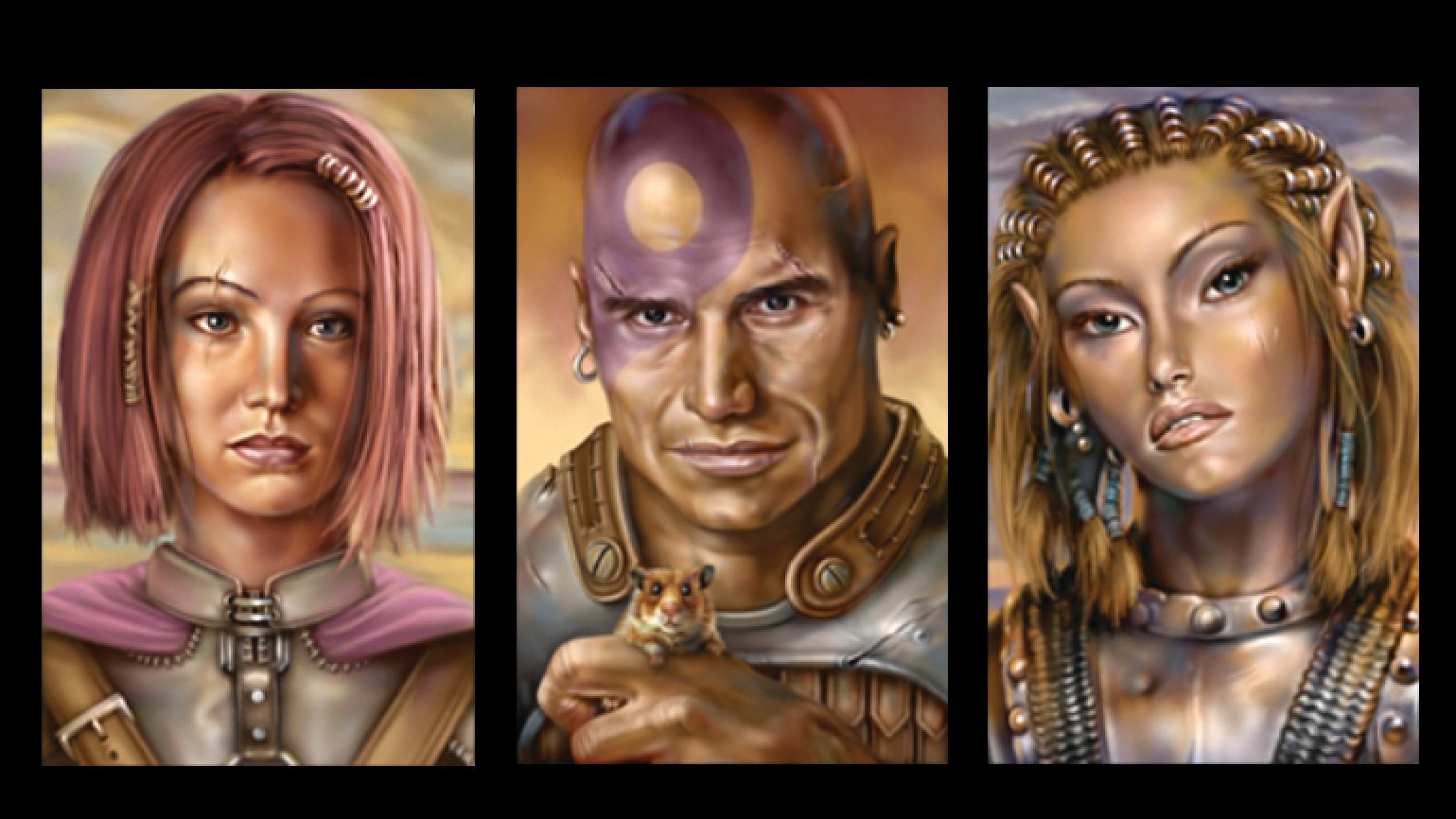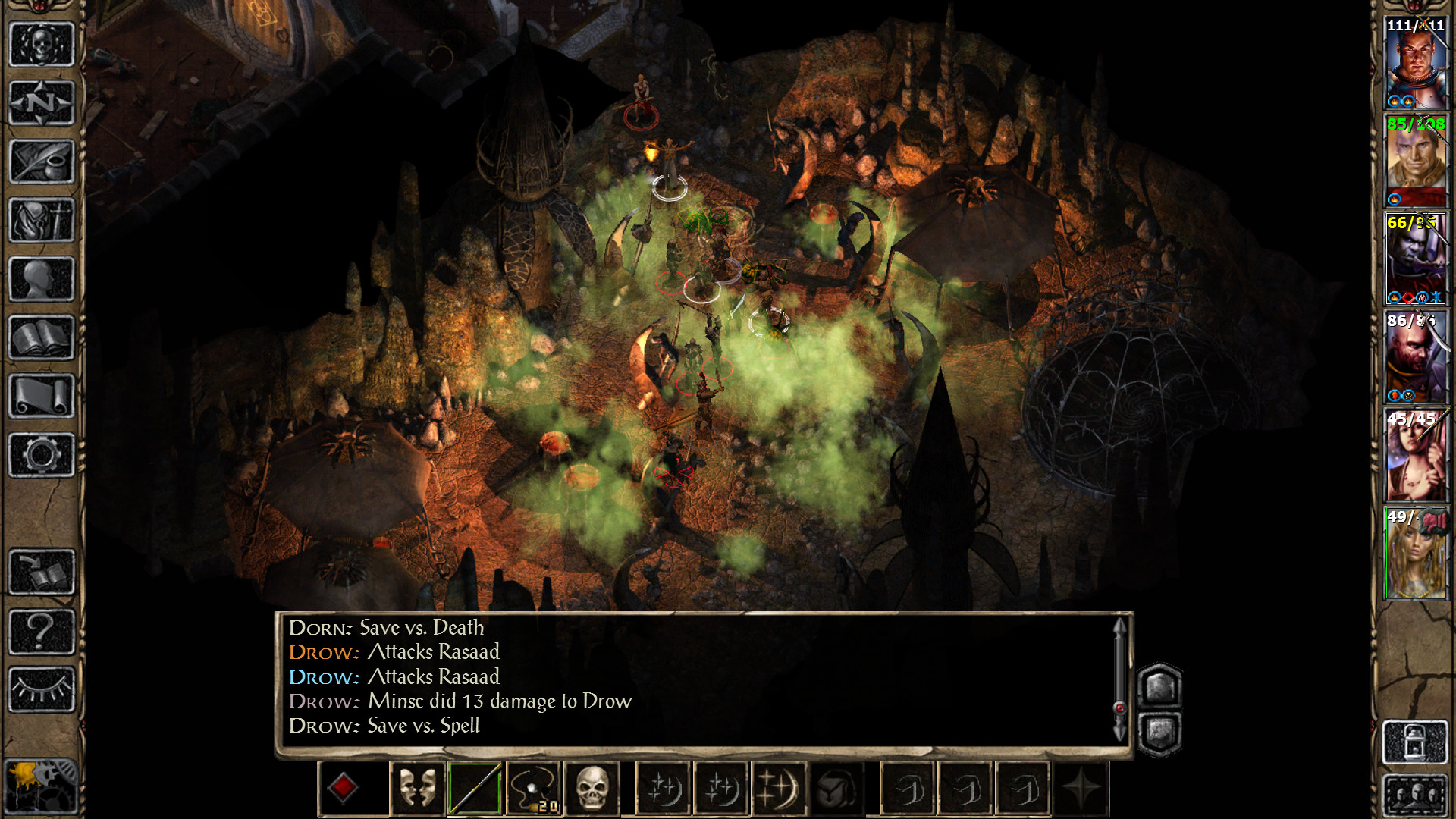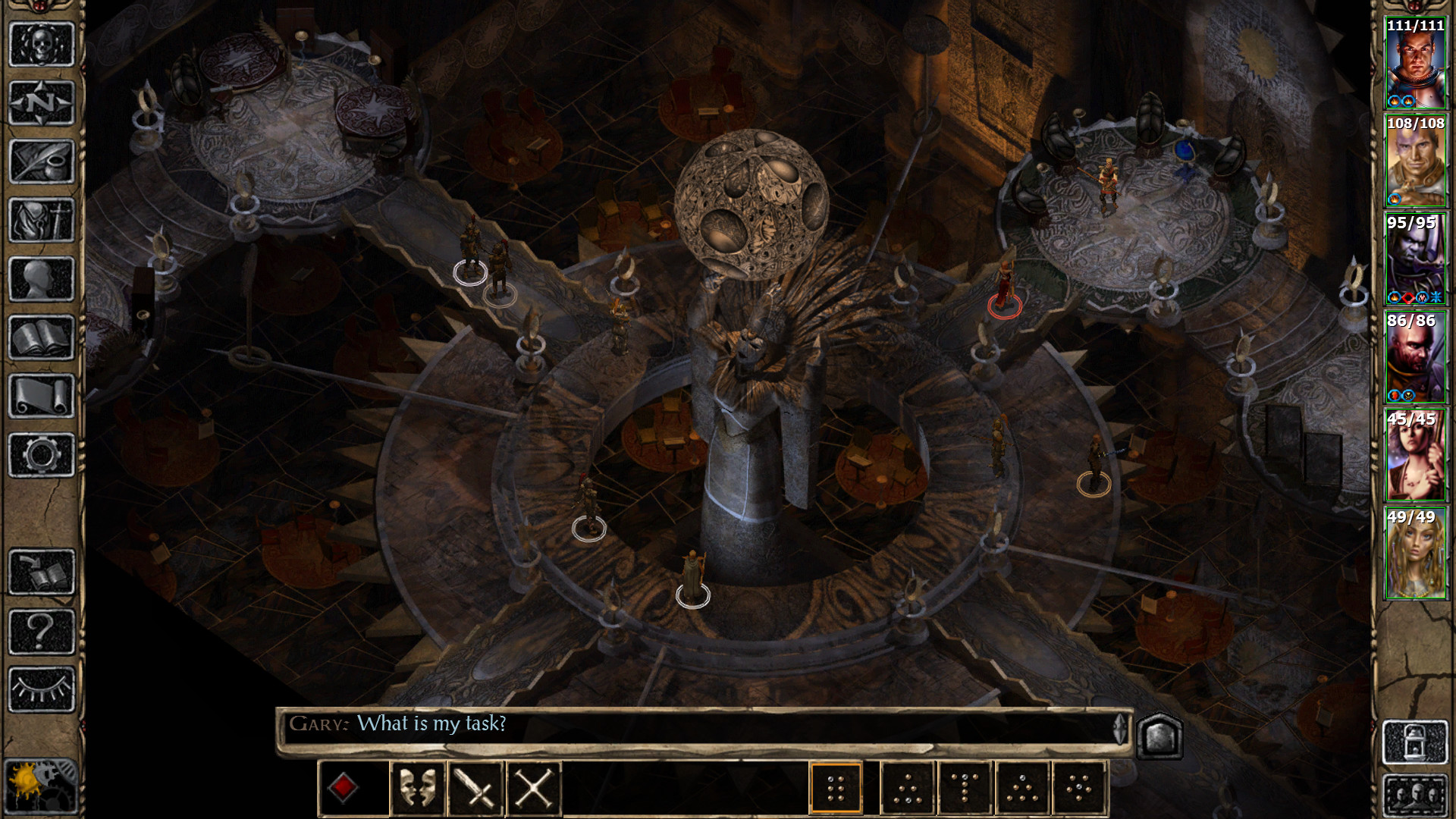
This piece is part of a series of articles that ran in PC Gamer UK issue 326celebrating Baldur's Gate, 20 years on. For more quality articles about all things PC gaming, you can subscribe now in the UK and the US. Here's everything we know about Baldur's Gate 3.
The twisting trails and torchlit tunnels of the Sword Coast would be lonely without a friend or two to share the journey or, sometimes, to also walk ahead and check for traps. While the prudent adventurer builds a party balanced by all the standard classes and capabilities, powerful warriors alongside erudite clerics and canny rogues, Baldur’s Gate has always been as much about who these characters were as what they could do. I have no doubt that, like me, you remember your favourite character’s one-liners far better than you remember their stats.
A new party member was never just another faceless fighter made up of skills and numbers. Rather than being a spreadsheet that swung a sword, they were someone who brought their own personality and objectives into the group, and even some painful prejudices. Baldur’s Gate offered the idea that your companions don’t blindly offer their silent support in whatever you try next, but might run out of patience if you didn’t pay attention to them or, worse, could begin fighting amongst themselves over what might generously be described as ‘philosophical differences’ (such as being unashamedly Chaotic Evil).
Take Xzar and Montaron, two of the first potential pals lurking in Baldur’s Gate’s woodland wilderness. Not only are they bickering bad guys, their motivations aren’t quite what they seem. It’s the game’s way of telling you that perhaps it’s not the wisest choice to simply team up with any old adventurer you meet in the middle of nowhere. Then there’s Minsc, one of the toughest characters in the series, but also one of the least coherent: a manic man who will turn on you if you don’t fulfil your promise to rescue his companion Dynaheir. His conversations with his pocketsized pet, a so-called space hamster, are the very least of your problems.

You’re never sure what you’re getting yourself into when you decide that someone you met in a dungeon should join you on the journey of a lifetime, and that’s exactly how it should be. There’s something inherently risky about the idea of teaming up with strangers you’ve met on the road, agreeing to face danger and even death together after barely sharing a mug of mead, and Baldur’s Gate shows this all too well.
You’re never sure what you’re getting yourself into when you decide that someone you met in a dungeon should join you on the journey of a lifetime, and that’s exactly how it should be.
And if this deconstruction of dungeoneering was already sobering stuff in the first game, it really came into its own in a sequel that didn’t just build upon these ideas, but bought them a first-class ticket direct to their logical conclusion. What conclusion? That being an adventurer in a D&D world would be a very bad experience. Killing things for money, constantly putting yourself in danger and keeping the company of people who did nothing but the same is an absolutely dreadful idea.
First of all, each one of the first game’s character pairings has been shattered by circumstance. Whether it’s the aforementioned Xzar and Montaron, the goodly Khalid and Jaheira or the expertly paired Minsc and Dynaheir, each duo now consists of a cynic and a corpse. Tragedy has torn these pairs asunder and the survivors are broken people.
Keep up to date with the most important stories and the best deals, as picked by the PC Gamer team.
Even the perky Imoen, your first potential companion and arguably closest friend, is now exhibiting all the signs of PTSD. Several new potential companions are equally traumatised. The apparently chipper Yoshimo hides a terrible secret, while the gentle cleric Aerie is a slave whose real quest is to rediscover hope. If you were expecting to run into the forest again, mug kobolds and be back in time for tea, you are playing far too serious a sophomore effort.

Even the bad guys have soul, none more so than the second game’s villain Jon Irenicus, expertly voiced by David Warner. This is a man who’s motivation is little more than heartbreak. Your investigations reveal a person broken down into bitterness, trying to reclaim something that was lost so long ago that he can’t even remember what it is he seeks.
It’s a testament to these characters that, 20 years later, they still shine, they still come through as such defined, distinct personalities. They’re all so human (whatever their race might be), far more so than in any other D&D game that had come before, and they bring so much dimension to the series, adding their quips to quest dialogue or finding ways to tease one another during downtime. They, along with so much of the excellent writing in this series, have influenced me as a writer and I remember many of them as well as I remember any favourite characters from films, books or TV. 20 years on, they still deserve that same level of love and appreciation and, boy, do they still get it.
For more, read about how the innovation of the Infinity Engine brought Baldur's Gate to life.

